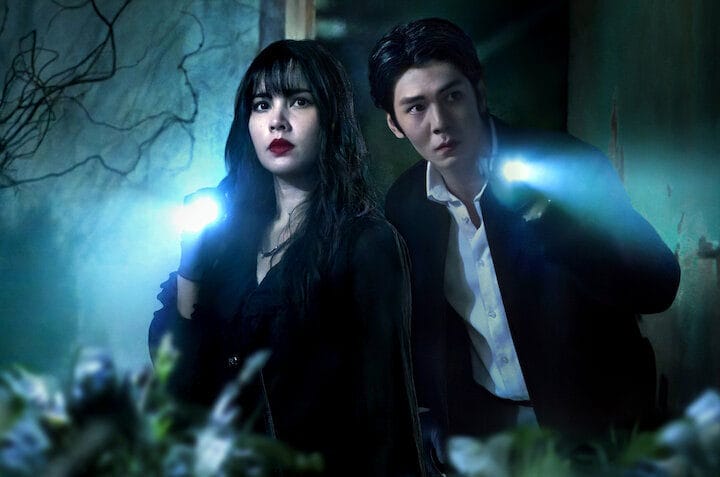When discussing the landscape of modern television, few shows have had as profound an impact as The Sopranos. This groundbreaking series, which aired from 1999 to 2007, redefined the possibilities of storytelling and character development in a medium that had long been considered a lesser art form. At the heart of The Sopranos lies a rich tapestry of characters, each meticulously crafted and integral to the show’s enduring legacy. From the morally ambiguous Tony Soprano to the complex relationships within his family, the characters of The Sopranos resonate with audiences even years after the show concluded.
Tony Soprano – The Complicated Anti-Hero
Tony Soprano, brought to life by James Gandolfini, stands as a towering figure in television history. As the head of the DiMeo crime family, he navigates the treacherous waters of mob life while also managing the challenges of suburban fatherhood. This duality is what makes Tony so compelling; he is both a feared mob boss and a man grappling with his own vulnerabilities, such as anxiety and depression. Tony’s therapy sessions with Dr. Jennifer Melfi peel back layers of his psyche, exposing the contradictions that define him. He is capable of ruthless violence yet shows moments of deep emotional complexity, particularly in his relationships with his family. Tony’s internal struggles with morality and identity create a rich, multidimensional character that keeps viewers engrossed. The tension between his public persona and private torment serves as a powerful narrative force, driving much of the series’ drama. Tony Soprano redefined the concept of the anti-hero, blurring the lines between right and wrong, and challenging audiences to see beyond his criminal facade.
Carmela Soprano – The Resilient Matriarch
Carmela Soprano, portrayed by Edie Falco, grapples with the consequences of Tony’s lifestyle while striving to maintain normalcy for their children. Her character navigates the turbulent waters of loyalty and morality, all while wrestling with the benefits and drawbacks of the affluence crime affords her family. Carmela’s internal conflict is palpable as she balances her love for Tony with her growing discontent over his infidelities and criminal dealings. This tension is heightened by her own moral and religious beliefs, leading to compelling confrontations and soul-searching moments. Carmela’s development throughout the series sees her transform from a seemingly complacent housewife into a woman who asserts her own needs and desires, making her one of the most complex and resilient characters in The Sopranos.
Christopher Moltisanti – The Ambitious Protégé
Christopher Moltisanti, played by Michael Imperioli, is a quintessential example of the young and ambitious protégé in the world of The Sopranos. As Tony Soprano’s nephew and mentee, Christopher constantly battles between his dreams of becoming a Hollywood screenwriter and his obligations within the crime family. His character is marked by a relentless pursuit of validation and success, often leading him down destructive paths. Christopher’s struggle with substance abuse further complicates his journey, highlighting the darker aspects of his ambition and the pressures he faces from both his criminal and personal life. The tension between his aspirations and his reality creates a poignant narrative of unfulfilled potential and the heavy costs of loyalty. His relationship with Tony is fraught with a mixture of admiration, resentment, and a desperate need for approval, adding layers of complexity to his character. Christopher’s tragic trajectory serves as a cautionary tale about the perils of ambition and the often insurmountable challenges of escaping the gravitational pull of one’s environment. His character arc provides a compelling exploration of the sacrifices and compromises inherent in the pursuit of one’s dreams within the confines of organized crime.
Dr. Jennifer Melfi – The Ethical Therapist
Dr. Jennifer Melfi, portrayed by Lorraine Bracco, is a pivotal character who delves into Tony Soprano’s psyche, offering viewers a rare glimpse into the mind of a mob boss. Her sessions with Tony are some of the most gripping moments in the series, where professional detachment meets raw human emotion. Melfi’s ethical dilemmas are central to her character arc. Treating Tony, she is constantly torn between her professional duty to help and the moral implications of aiding a criminal. Her inner conflict is exacerbated by her growing empathy for Tony, which challenges her ability to remain objective. This delicate balance of professional ethics and personal feelings enriches the narrative, providing a stark contrast to the brutal world Tony inhabits. Melfi’s own vulnerabilities and the pressure to uphold her ethical standards in such a fraught situation add layers of complexity to her character. Her interactions with Tony not only advance the storyline but also underscore the show’s exploration of morality, identity, and the human condition. Through Melfi, The Sopranos highlights the importance of mental health and the ethical intricacies involved in treating those on the fringes of society.
Meadow Soprano – The Voice of a New Generation
Meadow Soprano, played by Jamie-Lynn Sigler, represents the new generation struggling to reconcile the dichotomy between her family’s criminal ties and her personal ambitions. Growing up in the shadow of Tony’s criminal empire, Meadow initially enjoys the privileges afforded by her family’s wealth but gradually becomes cognizant of its moral implications. Her journey from a high school student to a socially aware young woman highlights the tension between familial loyalty and the desire for an independent identity. Meadow’s intelligence and determination drive her to excel academically and seek a life far removed from the mob, yet her deep-seated connection to her family constantly pulls her back into their world.
Her evolving awareness and moral questioning serve as a narrative device that challenges the status quo of her family’s operations, bringing a fresh perspective to the series. Meadow’s relationships, particularly with her parents and brother, further illustrate her internal conflict. She is torn between the love and loyalty she feels for her family and her own ethical convictions. This tension is palpable in her interactions and choices, making Meadow a relatable and complex character who encapsulates the struggles of a younger generation seeking to forge their own path while grappling with the legacy of their upbringing.
Paulie Gualtieri – The Loyal Lieutenant
Paulie Gualtieri, played by Tony Sirico, is one of The Sopranos‘ most distinctive and memorable characters. Known for his eccentricities and often humorous quirks, Paulie provides a much-needed dose of levity in the show’s intense and dark narrative. His character is marked by an unwavering loyalty to Tony Soprano and the crime family, embodying the old-school mobster ethos with a strict code of honor. Paulie’s deep-seated insecurities, stemming from his tumultuous upbringing and the pressures of mob life, add layers of depth to his personality. His relationships with other characters often oscillate between camaraderie and conflict, reflecting the volatile dynamics within the organized crime world. Paulie’s meticulous attention to detail and almost paranoid tendencies make him both a reliable lieutenant and a source of tension within the crew. His interactions often reveal the internal struggles of living a life bound by crime, showcasing his vulnerability despite his tough exterior. Paulie’s narrative arc, filled with moments of both comic relief and genuine emotional weight, exemplifies the nuanced character development that The Sopranos is renowned for.
Silvio Dante – The Consigliere
Silvio Dante, portrayed by Steven Van Zandt, brings a distinctive flair to the role of Tony’s consigliere. Unlike the more volatile characters in the series, Silvio is characterized by his composed and methodical approach to problem-solving. His background as a former nightclub owner lends him a unique perspective on managing the various facets of mob life. Silvio is often seen as the voice of reason, offering Tony grounded advice and strategic insights that help navigate the intricate politics of the crime family. His loyalty to Tony is unwavering, yet he does not shy away from voicing his concerns when necessary, showcasing a deep sense of duty balanced with personal integrity.
Silvio’s calm exterior often masks a ruthlessness that is revealed during critical moments, making him a multifaceted character who can switch between being a stabilizing force and a decisive enforcer. His relationship with Tony is built on mutual respect and long-standing friendship, adding a layer of emotional complexity to his role as consigliere. Silvio’s interactions with other crew members also highlight his tactical mind and ability to mediate conflicts, underscoring the indispensable nature of his counsel. Through Silvio, The Sopranos explores the delicate balance of power, loyalty, and wisdom required to survive in the world of organized crime.
Livia Soprano – The Manipulative Matriarch
Livia Soprano, portrayed by Nancy Marchand, is one of the most formidable and unsettling characters in The Sopranos. Her manipulative tactics and emotional coldness cast a long shadow over Tony’s life and psyche. Livia’s skillful manipulation of those around her is evident in her ability to incite conflict and exploit the vulnerabilities of her family members. Her complex relationship with Tony underscores the deep-seated familial issues that permeate the series. Tony’s love-hate dynamic with his mother is fraught with tension, resentment, and a desperate need for approval, mirroring the struggles he faces in his mob dealings. Livia’s sharp wit and cutting remarks often serve to undermine Tony’s sense of self-worth, revealing the deep psychological scars that drive much of his behavior. Her presence in the series is a constant reminder of the toxic legacy of family dysfunction, illustrating how past traumas and unresolved conflicts can influence one’s present and future. Livia’s interactions with other characters, such as her manipulative dealings with Junior Soprano, further highlight her capacity for emotional warfare, making her a pivotal figure in the series’ exploration of family dynamics and personal identity.
Adriana La Cerva – The Tragic Innocent
Adriana La Cerva, portrayed by Drea de Matteo, is one of the most poignant characters in The Sopranos, embodying the theme of innocence lost. Starting as Christopher Moltisanti’s loving and supportive girlfriend, Adriana dreams of a glamorous life far removed from the crime-ridden world around her. However, her naivety and desire for a better future make her vulnerable to the dark realities of mob life. As she becomes more entrenched in the criminal activities of the DiMeo family, her aspirations are overshadowed by the perilous environment she finds herself in.
Adriana’s character arc is marked by a gradual erosion of hope and security. Her involvement with the FBI, stemming from her desperation and fear, serves as a critical turning point in the series. This forced cooperation places her in an untenable position, caught between her loyalty to Christopher and the increasing pressure from federal agents. Her situation becomes even more heartbreaking as she attempts to maintain a semblance of normalcy, all while grappling with the growing danger surrounding her.
The tragedy of Adriana lies in her ultimate fate, a stark reminder of the merciless nature of the world she inhabits. Her story is a powerful commentary on the heavy toll of the criminal lifestyle, particularly on those who are drawn into it by love and loyalty. Adriana’s journey, filled with moments of genuine vulnerability and tragic inevitability, makes her one of the most unforgettable characters in The Sopranos.
The Sopranos’ Legacy – Impact on Modern Television
The Sopranos revolutionized television, setting new standards for character complexity and narrative depth. By delving into themes like loyalty, morality, and mental health, it transcended the traditional confines of TV drama, influencing an entire generation of series. Shows such as Breaking Bad, Mad Men, and Better Call Saul owe a debt to The Sopranos for its pioneering approach to storytelling. Its impact extends beyond just plot and character development; it also paved the way for the anti-hero archetype that has become a staple in modern television. The series demonstrated that TV could explore nuanced human experiences with the same gravitas as cinema, forever altering the medium.













